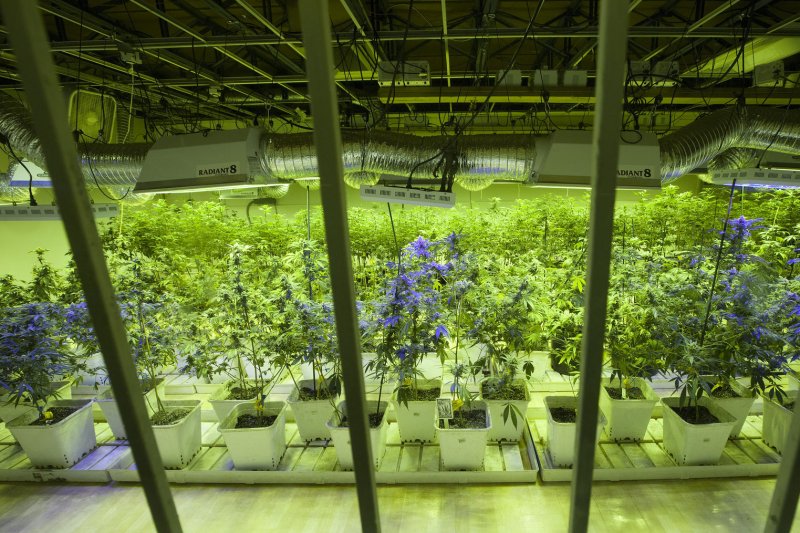Marijuana customers may peer through windows at the marijuana plants as they are cultivated at the 3D Cannabis Center in Denver on January 1, 2014. UPI/Gary C. Caskey |
License Photo
Though it may come as no surprise to law-abiding stoners and medicinal pot users, a new study suggests legalizing marijuana for medical use is not associated with an uptick in crime.
Even before Washington and Colorado legalized pot for recreational use, opponents were arguing that the drug's proliferation for medicinal purposes would result in higher rates of crime and delinquency. But a new study by researchers at the University of Texas, Dallas, determined that not to be the case.
"The main finding is that we found no increase in crime rates resulting from medical marijuana legalization," explained Dr. Robert Morris, associate professor of criminology and lead author of the study, which was recently published in the journal PLOS ONE. "In fact, we found some evidence of decreasing rates of some types of violent crime, namely homicide and assault."
The study analyzed crime rates from all 50 states between 1990 and 2006. During that time, eleven states legalized marijuana for medical use, including: Alaska, California, Colorado, Hawaii, Maine, Montana, Nevada, Oregon, Rhode Island, Vermont and Washington. When accounting for a range of socioeconomic factors, researchers were able to show that not a single type of crime increased in the wake of marijuana legalization.
Since 2006, several more states have legalized medical marijuana, and two have legalized recreational pot use. Morris says he plans to do more research to account for these changes.
Still, he thinks these results are "pretty remarkable."
"This new information, along with continued education of the public on the realities of the negative aspects of smoking marijuana -- which there are considerable negative attributes -- will make the dialogue between those opposed and in favor of legalization on more of an even playing field," Morris added.
[University of Texas, Dallas]















